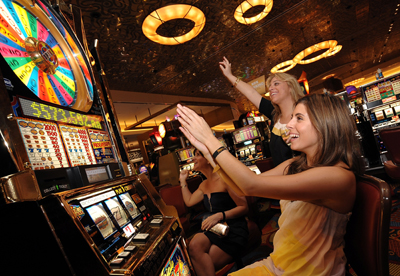
Casino entertainment have long been a significant aspect of human culture, offering not just entertainment but a intriguing reflection of our dreams, wishes, and anxieties. From the rotating wheels of a slot machine to the skill-based strategies of poker, these games encapsulate a spectrum of human feelings and experiences. At their core, casino games are more than a chance to earn cash; they are a microcosm of life itself, where danger and gain merge and luck can change in an eye blink.
As players gather around tables or sit in front of brightly lit machines, they engage in a ritual that transcends mere gambling. These games mirror our innate desires for relationships, adventure, and the quest for chance. They also unveil deeper truths about human psychology, such as our relationship with luck and the thrill of the unknown. In exploring casino games, we discover not only the mechanics of play but also the complex weave of the human journey, showcasing our woven narratives of aspiration and reality.
The Mind Behind Gambling
Wagering is deeply rooted in the psyche of individuals, appealing to various emotions and wants. The thrill of risk-taking is a fundamental aspect that draws players in, whether the thrill of spinning a roulette wheel or the excitement of drawing a winning card in a poker game. This rush of adrenaline is often compared to other forms of excitement, as the unpredictability of outcomes elicits a unique psychological response. Gamblers often become captivated by the possibility of striking it rich, leading to an irresistible draw toward gambling games.
Additionally, a crucial component of the psychology behind gambling is the concept of hope and aspiration. Players often nourish dreams of financial freedom and the luxurious lifestyle that can follow winning. This hope fuels their continued participation in gambling, as it provides a sense of purpose and the belief that a life-changing win could be just one bet away. The story of beating the odds and finding success resonates with many, reinforcing their commitment to play and involve themselves with these games.
Finally, social dynamics play a crucial role in gambling psychology. Gambling venues are designed to foster social interaction, where gamblers gather to share the journey of wins and losses. This shared aspect not only enhances enjoyment but also affects behavior, as individuals often imitate the actions of others in their vicinity. The collective approval found in shared excitement can magnify the emotional experience, making casino games a mirror of not just personal desires but also collective engagement within the gaming community.
## The Dual Nature of Risk and Reward
Gambling activities embody the fragile balance between risk and gain that resonates deeply with the human experience. The thrill of placing a bet is often accompanied by a jolt of energy, as gamblers are confronted with the possibility of a huge payout, yet cognizant of the possibility to suffer losses. This bipartisan experience reflects a core aspect of life: the decisions we face often come with built-in risks, and the quest for benefit can drive us to make risky moves we might not normally consider. In this way, gambling activities mirror real-world decisions, enticing players to gamble not just their money, but also their dreams.
The allure of jackpot prizes and payouts fuels a wave of hope, encouraging gamblers to dream of a better future that could emerge from a fortunate turn of the roulette or dealing of a hand. This positive outlook can compel individuals to engage in riskier behaviors, pushing them to push their boundaries in search of financial gain. However, just as in life, the consequences of these decisions can lead to both victory and loss. The narratives of both jackpot winners and those who have lost everything at the tables demonstrate the random nature of luck and its significant repercussions on our existence.
Ultimately, the experience of engaging with casino games serves as a potent reminder of the nature of humanity. Every game played is imbued with the tension of risk, as gamblers weigh the gains against the dangers. This balance not only highlights the excitement that comes with betting but also unveils the risks that come with the desire for more. As we journey through the challenges of choice and consequence in both the gambling world and in life, we find that the search for benefit shapes our character and experiences in significant manners.
Culture and Loneliness in Casino Environment
Casino culture is a special mix of communal engagement and individual endeavor, reflecting the tensions of individual experience. Gamblers often come together around games, sharing in the thrill of the action, celebrating wins, and commiserating over losses. This communal aspect is crucial, as it establishes a sense of community and camaraderie among varied groups of individuals. Regular attendees to gaming establishments may build friendships and establish routines, turning the casino into a second home where they feel linked to a larger community of players.
However, the attraction of gambling games can also lead to isolation. As players become immersed in the excitement of gambling, they may withdraw from personal connections or fail to interact with the environment outside the gaming space. W88 For some, the pursuit of a jackpot can distract from real connections, leading to isolation. The experience of being among others yet feeling solitary is not rare, as the focus shifts from shared enjoyment to the private stakes of each individual’s journey.
This interplay of society and isolation creates a rich tapestry that defines gaming culture. It highlights the complexity of social interactions, where happiness and sorrow coexist. Casinos serve as both a sanctuary for social engagement and a platform for individual struggles, illustrating how deeply connected our desire for companionship and the personal quest for wealth can be. In navigating this landscape, gamblers confront their own stories—seeking both the thrill of the wager and the companionship of other gamblers, eventually reflecting the broader spectrum of human experience.